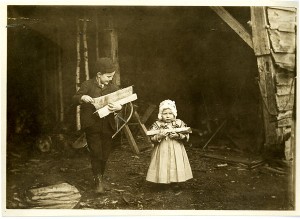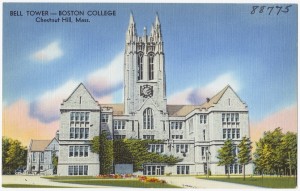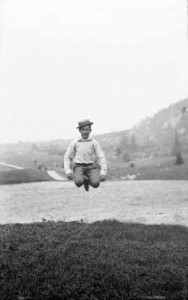Early bird registration ends on March 23rd, so make sure you sign up today for the annual 9th Digital Commonwealth Conference. The Conference “Cloud Bursts and Brain Storms,” will be held on April 2nd at the Hogan Center at the College of the Holy Cross in Worcester. In addition to the two keynote speakers, Clifford Lynch, director of the Coalition for Networked Information, and Dan Cohen, executive director of the DPLA, the conference will also feature many interesting breakout sessions. Some breakout sessions include Packaging Collections for Public Consumption with Sara Slymon and Elizabeth Thomsen, Copyright Issues and Libraries with Emily Kilcer and Kyle Courtney, The Policy Cycle with Diane Brenner and Ed Lewis, and our ever popular Rapid First Inspiring Projects. We hope we’ll see you there!
Category Archives: Events
A Sweet Deal for Public Libraries
By Harold Smith
If you work at a public library, especially if you work at a small library where opportunities for collaboration are rare and money for new projects is even rarer, then you should read about this opportunity that is now available. Here’s the deal in a nutshell. If you have an unprocessed collection, even if you aren’t sure of their importance, you can arrange for someone to come to your library to assess the collection and to walk you through the entire process of project design, digitization, metadata creation, rights management, and putting the collection online. If you have never done anything like this before, they will help you learn. If you have done similar work but are simply strapped for time or money, they can take a lot of the work off your hands and they can do it with grant money instead of your money. All they ask in return is that you share what you digitize. That doesn’t mean you lose your collection or even that you lose the right to host the digital collection if you want, it just means that the metadata and a thumbnail image will be used to link your content with the content from other collections. This expands the reach of your collection and helps get your library more attention, but this aggregation of data also helps develop new opportunities for research. It’s a great opportunity to honor that donor who gave items not so that they could gather dust in your basement, but so that they could be used and shared in meaningful ways. It also is an opportunity to improve your digitization skills without taking on an entire project by yourself. I attended a workshop about this at the Jones Public Library in Amherst on June 18th, and I left feeling really excited about the whole idea. Like I said, it’s a sweet deal.

How is this possible? The Public Library Partnership Project is funded through the Digital Public Library of America by the Gates Foundation. Four states are involved and in each state there is a digital library partner to provide training. In Massachusetts, this assistance is provided by the Digital Commonwealth and the Boston Public Library. If you decide to get involved these are the folks who will come and work with you. It’s not like working with a vendor who will come and scan your collection only to leave you with a bunch of questions and a confusing list of file names. The goal here is different. The goal is to make it as easy as possible for you, and to create a sense of perpetual engagement so that there is a process in place for continued sharing. One example of that ongoing relationship is the goal of working with public libraries to create exhibitions from the newly ingested content. The exhibitions would be built in part with your content, as well as with your knowledge of the community that is sharing the content, and they would be hosted by the Digital Public Library of America, whose site has had more than one million unique visitors. To make participation in these exhibitions easier, additional training will also be available about how to put a collection together, about writing for the web, and for learning to use Omeka when putting exhibitions together. The DPLA exhibits would share your content on equal footing with content from other, often larger organizations, and it would make it part of a national narrative. After participating in that process, you could then take those same skills to build a local exhibit designed specifically for your own community. It would be a great way to keep the new skills sharp and to give back to the local community that shared the content and has a deeper connection to it.
To learn more about this opportunity, please consider filling out the very simple form that will get the ball rolling. You can find it on the Digital Commonwealth site. If your public library is not a member of the Digital Commonwealth, joining is a great option, but don’t abandon the idea of participating in the digitization project if you are not members. Like public radio, support is important and encouraged, but no one is turned away. To do so would undercut the whole idea behind such projects. Worst case scenario, you end up chatting with someone at the Boston Public Library about the interesting stuff at your library and the possibility of finally getting it processed and out where it can be accessed. And, if while filling out the form you realize you aren’t even sure how to answer the questions, remember that putting “I don’t know” is a perfectly fine and honest response. Someone will get back to you and will help you along; that’s what is so great about this project.
If you’re interested in this opportunity, you should attend the next and final workshop in the series at SAILS Inc., Lakeville, MA on July 16 from 9:30 AM – 4:30 PM.
3 Breakout Session Reports from the 2014 Annual Conference
Developing a Born-Digital Preservation Workflow
Presenters: Bill Donovan and Jack Kearney, Boston College

Our presenters described the workflow followed to access records on an external hard drive included in the personal papers of Irish soprano and harpist Mary O’Hara, their first dive into the sea of digital preservation. They described how workflows start as baseline best practices. What happens when the unanticipated occurs? Hearing about the steps taken at Boston College to appraise, ingest and clear unanticipated hurdles along the way reinforced that processing plans/workflows are a starting point. What you find when you open the files can and will drive changes to workflows – sound familiar? Tags: Writeblocker, UNIX, 8.3 Constraint, Fixity (software), Identity Finder (software), XENA tool, Policy writing, FITS tool, JHOVE tool, LOCKSS, DP in a box, Digital Forensics.
Digital Commonwealth 2.0: It’s Alive!
Presenters: Steven Anderson and Eben English
Despite the migration to our new platform in Fedora and Hydra literally happening while we met, our intrepid presenters gave before & after comparisons of the repository website with its streamlined visual presentation and enhanced search capabilities. If you haven’t already, check it out!
Rapid Fire Inspiring Projects

Presenters: Christine Clayton, Worcester Art Museum (WAM); Abigail Cramer, Historic New England (HNE); Sean M. Fisher, Department of Conservation (DCR) and Recreation and Rebecca Kenney, Massachusetts Water Resources Authority (MWRA); Larissa Glasser, Arnold Arboretum Horticultural Library (AAHL); Nancy Heywood, Massachusetts Historical Society (MHS); Michael Lapides, New Bedford Whaling Museum; Sara Slymon, Turner Free Library
WOW! Our presenters offered up a smorgasbord of formats, collections and projects they undertook to make records available to their users. For some, their users were internal, like the WAM, which digitized exhibition catalogs, HNE digitized their collection of photographs by Nathaniel Stebbins, DCR and MWRA digitized 8800 images, the largest collection undertaken by Digital Commonwealth so far. AAHL digitized a collection of glass plate negatives…the results? Unanticipated revenue streams – from interior decorators, increased hits on websites, object provenance authentications, access to the identities of early American movers and shakers as reported in contemporary newspapers, accessible Town Reports and High School yearbooks. Several of these projects are still in the pipelines, so not yet searchable on the Digital Commonwealth website.
Submitted by guest reporter Elizabeth Cousins, First Parish in Brookline.